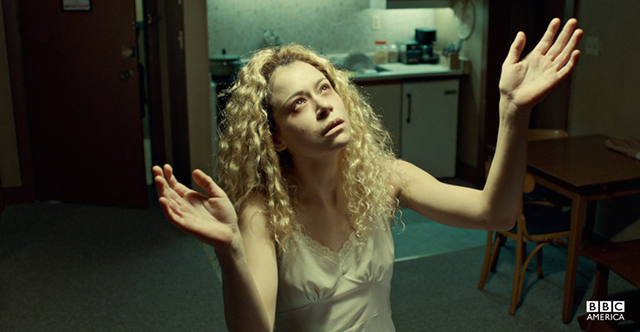Why Orphan Black May Be the Best Show on Television

Back in 2013, a show about human clones quietly launched on BBC America. Quickly, word of mouth got around about the unique, fast paced, unpredictable world of Orphan Black. Breaking beyond science fiction, the show’s strength lies in its ability to weave in shades of comedy, drama, and crime thriller. Orphan Black isn’t constricted to genre fans. It has gone beyond that to become one of those shows that you can recommend to anyone, regardless of what their typical taste is.
The strength of the show rests squarely on the shoulders of Tatiana Maslany, who may have the hardest acting gig on TV. Playing not one, two, or even three characters, she portrays six clones that get the most amount of screen time – Sarah, Helena, Alison, Cosima, Rachel, and Beth – in addition to numerous clones with smaller roles (I won’t even try to list them all here, plus, wouldn’t want to spoil anything for the uninitiated). Maslany has a unique ability to provide each clone with an individual identity. When you’re watching, it can be easy to forget that it’s the same actress playing all these characters. The challenges Maslany takes on are neverending, often portraying one of the clones pretending to be another one. Sarah as Beth, Cosima as Alison, Helena as Sarah – the layers of acting she achieves are unmatched by anything else on television. And while she portrays the characters with sometimes heartbreaking drama, she is also a master of finding the humor in the clones as well. Any scene of Helena eating or of Alison interacting with Felix is sure to provide some comedic balance to the action and drama of the show. And who could forget this making it rain dance scene?
But no matter how great an actress is, a show can’t stand on one person alone. Which is why the cast is rounded out by the scene-stealing Felix (Jordan Gavaris), Art (Kevin Hanchard) as the show’s voice of reason, and the mysterious – and badass – Mrs. S (Maria Doyle Kennedy). While last season the show took some criticism for the (possible) exit of Delphine, historically, Orphan Black has been praised for its LGBTQIA representation. Both the writers and the actors on the show have commented publicly on the intentional efforts to offer a diverse universe of characters.
As the show has progressed, we’ve seen more and more technical abilities of the production as well. Orphan Black has moved from scenes where they were able to show two clones hugging or touching hands, to full on clone dance parties. Maslany is always quick to credit her body double, Kathryn Alexandre, for making these scenes possible. The hair and makeup teams are also hard at work providing each clone with their own look- from Cosima’s dreadlocks to Helena’s pink-rimmed eyes to Alison’s perfect soccer mom wardrobe, it’s amazing to see how different one actress can look.
Beyond the show, the fandom that surrounds Orphan Black has taken on a life of its own. Aptly titled the Clone Club, the show has inspired art, a clothing line, fan podcasts, a weekly aftershow á la Talking Dead, and endless amounts of cosplay. One of the beautiful things about Orphan Black is that with one actress portraying so many amazing, complex characters, everyone is bound to have a favorite. (I’m a Cosima person myself – a science nerd operating from under a comic shop?? My hero.)
Now into season four, Orphan Black is still inventing, exciting, and full of talented performers. I can’t wait to see how the universe continues to grow.
Daryl Sztuka is a writer living outside Boston with her husband. You can find her reading comics, listening to records way too loud, and having intense staring matches with her cat, Agent Scully. Follow her on Instagram @girlseeksband and Twitter @girlseeksband.
—The Mary Sue has a strict comment policy that forbids, but is not limited to, personal insults toward anyone, hate speech, and trolling.—
Follow The Mary Sue on Twitter, Facebook, Tumblr, Pinterest, & Google+.
Have a tip we should know? tips@themarysue.com